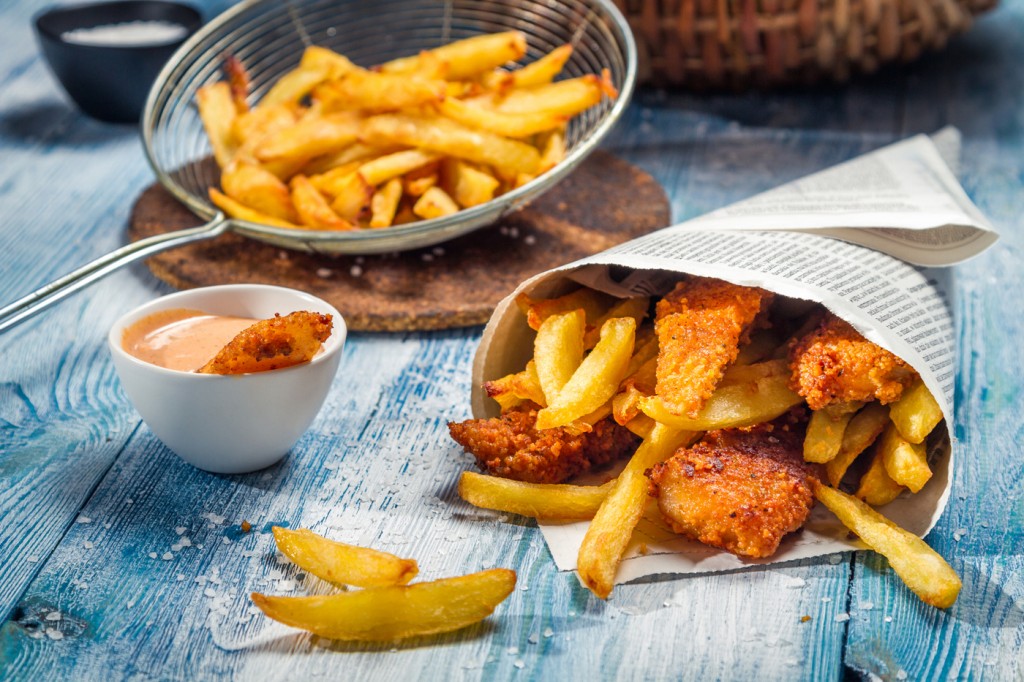What Are Processed Foods Anyway?


We hear the term “processed foods” all of the time. “Don’t eat processed foods; eat whole foods” is what is commonly touted by nutritionists, fitness experts, and wellness coaches, including me.
But, what are processed foods anyway? Technically, any food that has been changed from its natural state is a processed food. Read on for some critical distinctions you may not have considered that will help you pick the healthiest options for you and your family.
Minimally Processed Foods
Even fresh foods are processed. Let’s take lettuce, for example. There are two categories of lettuce: head lettuce and leaf lettuce. Head lettuce comprises iceberg lettuce while leaf lettuce is virtually every other type including romaine, red leaf, butter lettuce, and more.
According to the Agricultural Marketing Resource Center, lettuce is third on the list for the most consumed vegetable and ALL lettuce is marketed as a fresh product.1 But, wait? Many lettuce products are available pre-washed, triple-washed and wrapped up in a neat little complete salad package. So, doesn’t that mean it was processed? Yes, it does.
In fact, all fresh produce at some point is whisked off to a processing plant to be cleaned and approved for store shelves. The difference between processing a fresh product for purchasing and a processed food comes in at the point when the processing of the food becomes compromising to our health.
To simplify the distinction, some foods, like the lettuce mentioned above, are minimally processed while others are drastically altered which highly impacts their nutritional state. Let’s take a look.
Convenience, Fresh Frozen, and Canned Processed Foods
Convenience fresh foods are foods that are minimally processed in order to encourage those who do not cook to consume fresh, wholesome foods. Examples of minimally processed convenience foods are packaged fresh fruit slices and vegetables usually found in the produce section at the grocery store, packaged pre- and triple-washed greens, and raw or roasted seeds and nuts such as sunflower, pepitas, cashews, and almonds, for example.
Fresh frozen and canned foods are processed. Many of these are processed to seal in nutrients. For example, the wild blueberries that are rinsed, sorted, and flash frozen, are picked and processed at peak ripeness to preserve nutrients and freshness. Examples of fresh frozen and canned nutrient-dense foods include canned tomatoes, beans, vegetables such as beets and artichokes, and frozen fruits and vegetables. These examples EXCLUDE canned or frozen fruits and vegetables that have added sugars, chemical flavorings, preservatives, salt, and salt derivatives.
More Added Flavor Means More Processing
As a general rule, the more added flavor, the more processed the food. When the foods purchased literally have flavor added to them, or coloring, spices, oils, sweeteners, and preservatives, these foods are most certainly highly processed foods and should sound an alert in your mind.
When this alert goes off, read the labels, read the ingredient list, look for chemical additives (most often those unpronounceable words), and opt for a product that is less processed. Know that most ready-to-eat foods, frozen and microwavable meals are commonly the most processed foods. These products most often will have the most additives, the least nutrients and many additives that can harm your health.
Read Your Nutrition Labels!
Invest in your health by reading the labels of your favorite food products and those of your family. You may be surprised by the foods you thought were wholesome are not. Avoid foods that have added sugars. Sugar on a label can take the form of corn syrup, fruit juice concentrate, cane sugar, maltose, honey, agave, and more. Strive to consume sugar from natural sources such as fruit and not concentrates. Though honey is a natural sugar, look for raw honey as an ingredient. If sugar is one of the first three ingredients on the label, consider an option that has no sugar added and that uses an all-natural sugar.
Also, look for high amounts of sodium in highly processed foods. While sodium is necessary for good health, too much sodium can put pressure on the heart, stress the detoxification process of the liver, and cause many health problems including stroke, dementia and in general, too much sodium causes bloating and inflammation in the body at minimum making you uncomfortable and susceptible to weight gain and prevents weight loss. Many canned foods contain high amounts of sodium. Look for low sodium or sodium-free products and strain and rinse the food to wash off much of the added sodium.
The Bottom Line
In summary, embrace fresh foods that are not canned, packaged, and have no additives. These are the foods that will promote better health and are more protective of the body’s cells, organs, and blood flow. While it is nearly impossible to avoid highly processed foods, it is QUITE possible to make minimally processed foods the focal point of your diet — what you eat and drink every day.